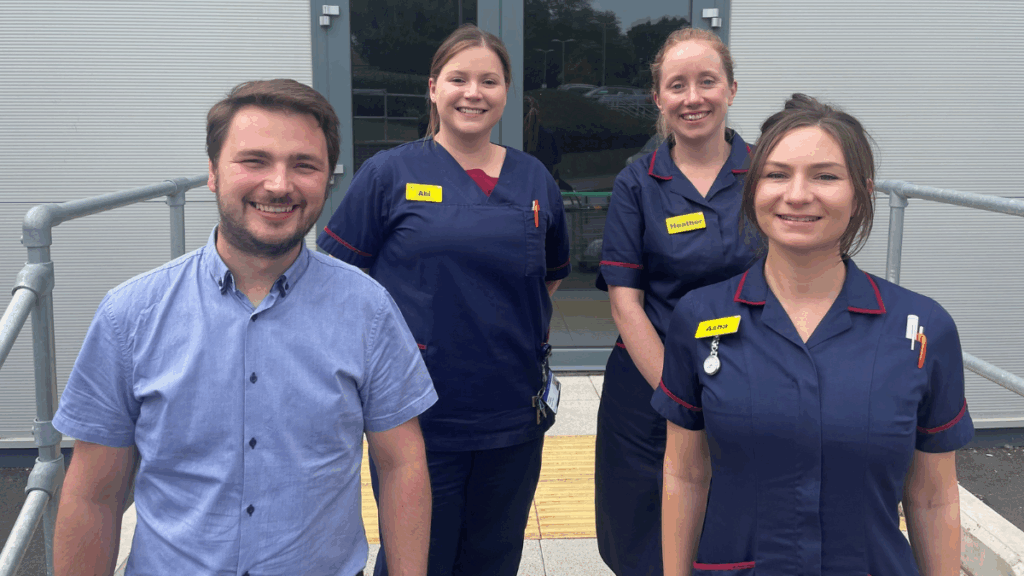
Research patient recruitment reaches record high at Good Hope
The research team at Good Hope Hospital – operated by BHP founder-member University Hospitals Birmingham – has marked a major milestone, achieving a phenomenal 1,000% increase in patient recruitment over the past six years.
In 2019, only 50 patients were successfully recruited to research studies at the hospital. In 2024-2025, this has soared to a remarkable 573, testament to the hospital’s growing research capabilities supported by the wider Trust.
The expansion began in August 2019, when Good Hope Hospital appointed its first research nurse with a vision to build a diverse non-cancer research portfolio. At the time, the hospital had a limited research presence, with just 1.5 full-time equivalent research nurses who were focused solely on cancer studies.
Since then, the team has grown to include three research nurses – Heather Willis, Abi Roberts and Asha Clement – and a portfolio support officer, Daniel Lenton.

With an expanded team and a stronger research infrastructure, the hospital has developed a broad research portfolio, increasing opportunities for patient participation across various specialties.
The team faced setbacks during the COVID-19 pandemic as the hospital had to rapidly establish COVID-related studies – which while raising public awareness of research’s importance caused the normal research portfolio to be temporarily paused, as staff were redeployed.
Since then, research activity has continued to thrive post-pandemic, and the team has been recognised by study sponsors for their high levels of recruitment.
With research now a significant part of Good Hope Hospital’s long-term strategy, the team has ambitious plans, including creating a designated research facility on-site, developing a commercial research portfolio and ensuring research remains self-sustaining and not a cost burden.
As the hospital moves forward with its strategy, its commitment to fostering a future-proof research workforce and expanding patient access to life-changing clinical studies remains key.